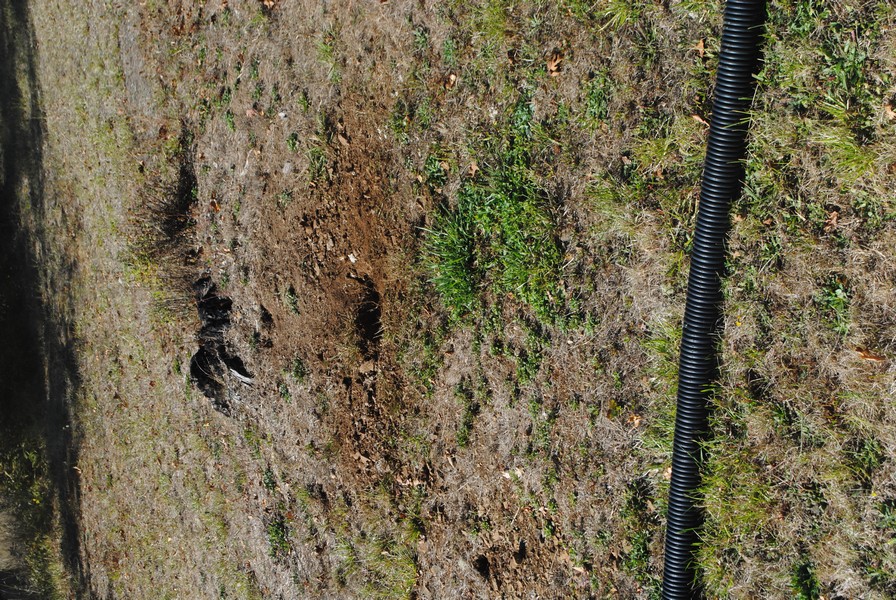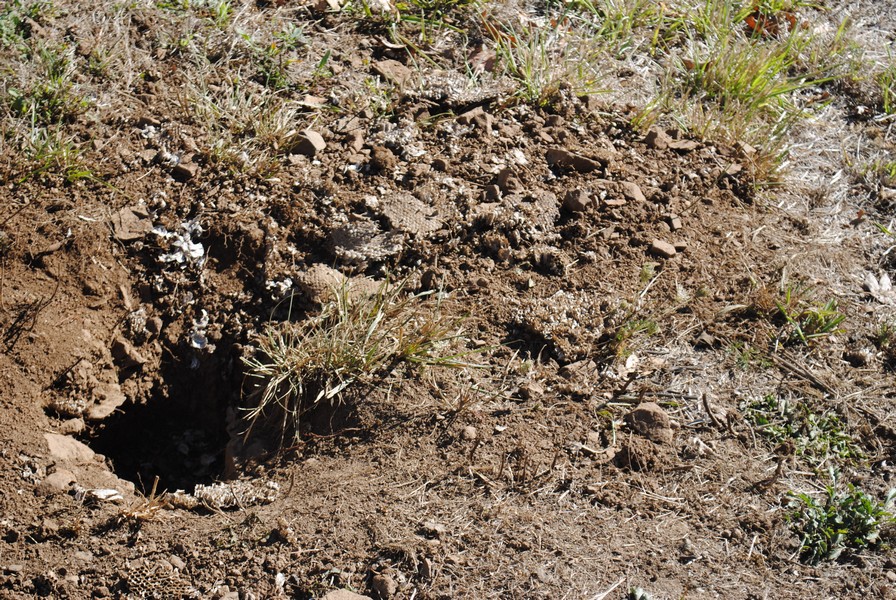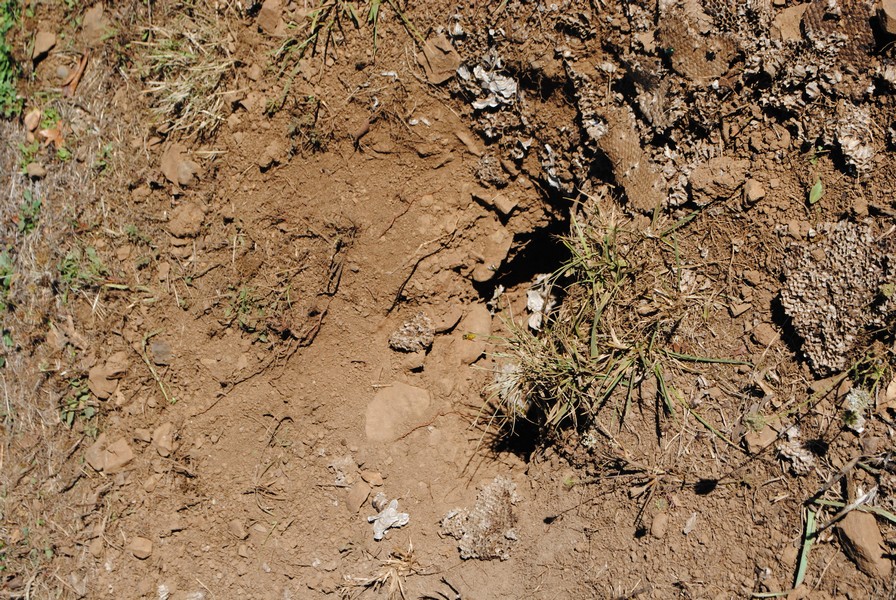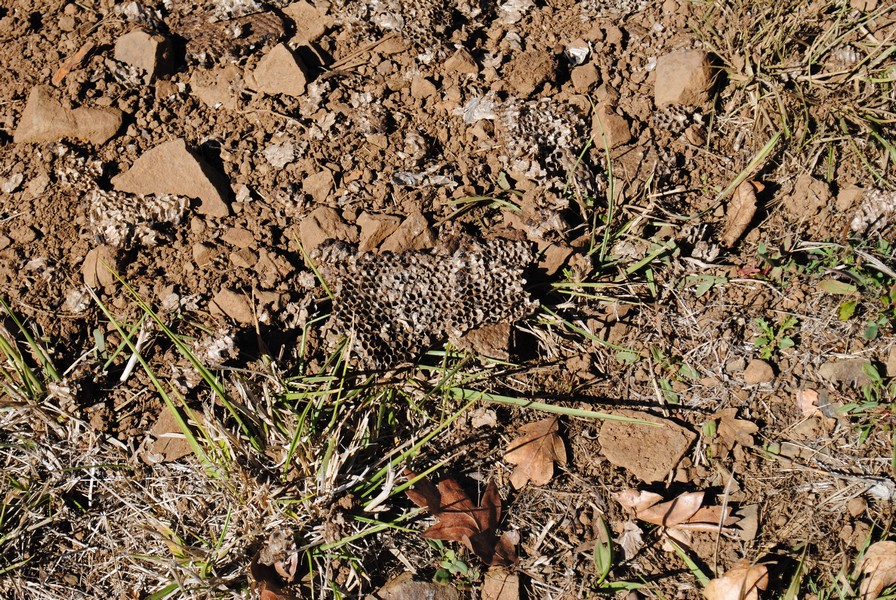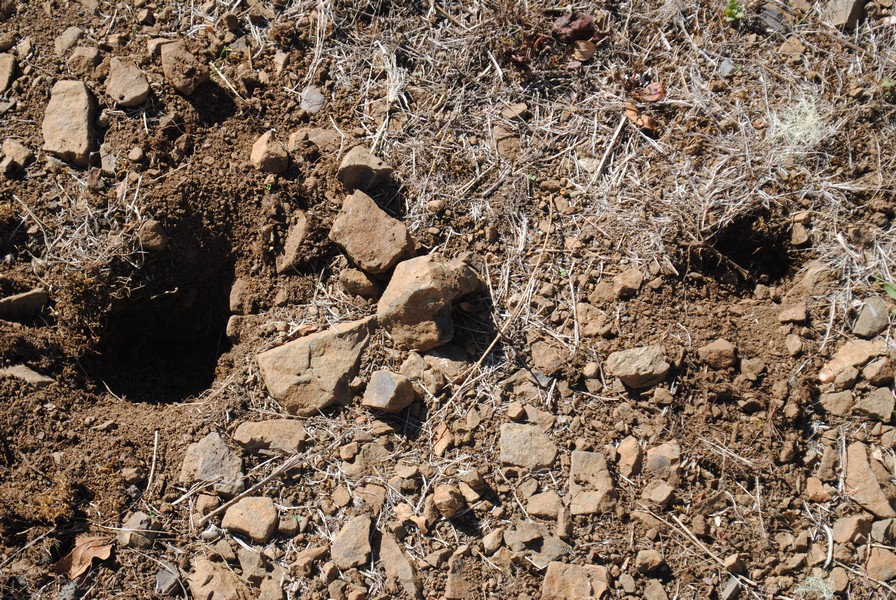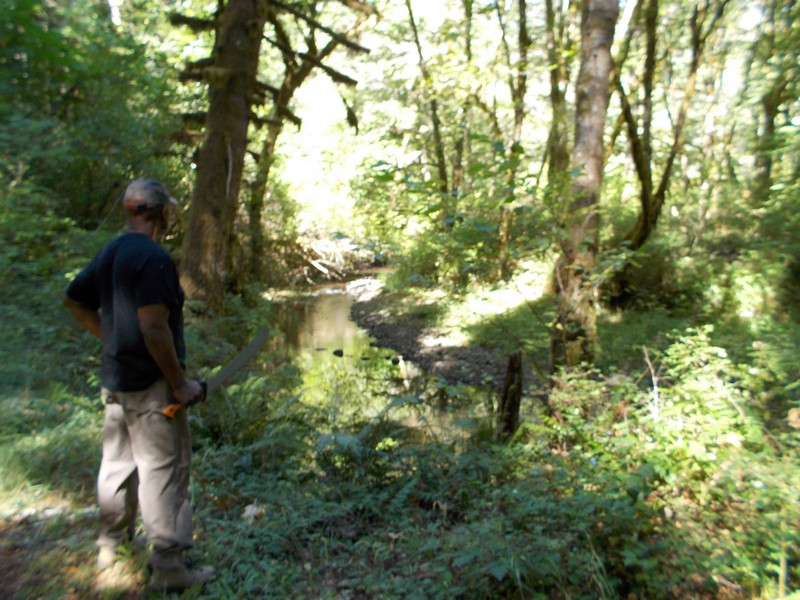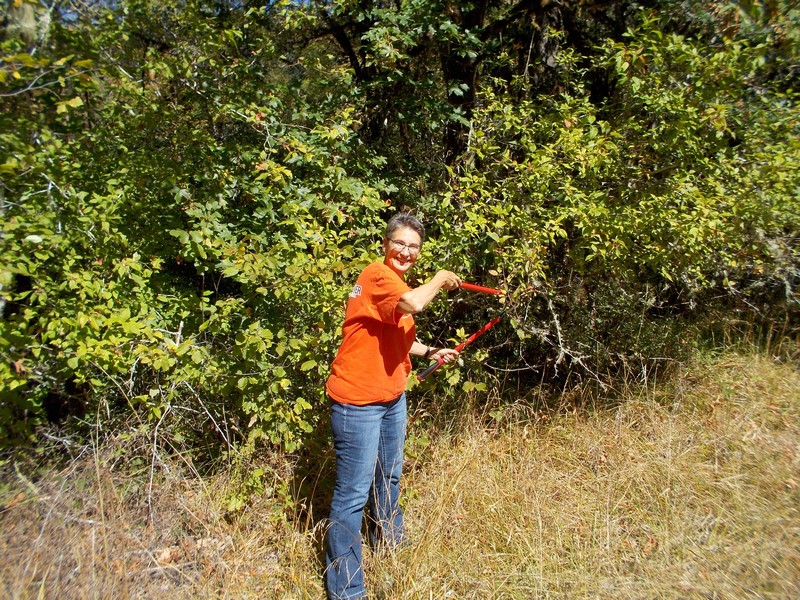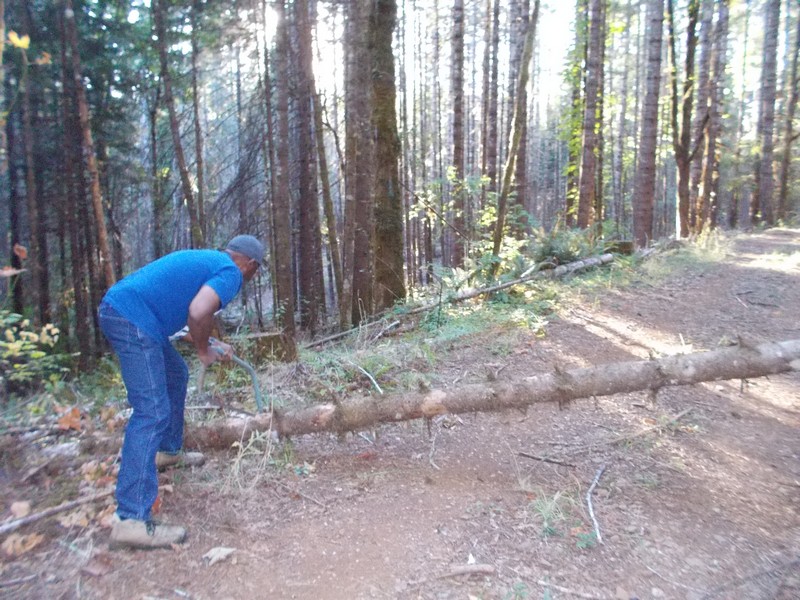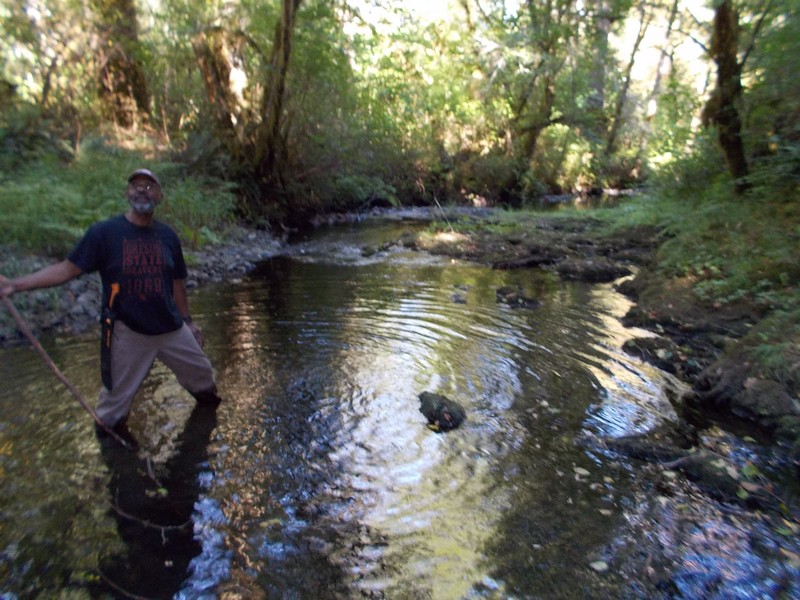Further info from the Oregon Extension service
What nocturnal animal would disturb a yellow jacket nest?
Asked July 2, 2013, 2:06 PM EDT
Found a yellow jacket nest in the ground coming out of a plant. The next day, there was a hole where the nest was, most yellow jackets were gone, with a few misplaced. This client was wondering what type of nocturnal animal would dig up a nest and eat the bees?
Clackamas County Oregon wildlife damage management
1 Response
Hello and thank you for your question.
Given your description, my first guess is that a skunk dug up the nest. Skunks are well known for nocturnal raids on domestic bee hives. They "roll" the individual bees beneath their palms to subdue them and then can consume them. I can imagine the same set of behaviors working well for yellow jackets slowed by nighttime temperatures. So skunk is my first guess. If tracks are still evident, we could try to ID that way as well.
Hope this information is helpful,
Dana
Danaandstregaaug2013_thumb Dana S.
